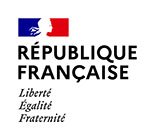You are here
The origin of language and diversity of languages
International conference, Friday 9 and Saturday 10 November 2018, at the Muséum de Toulouse.
International conference "Human being ? An archeology of the origins" by Jean-Marie Hombert, University of Lyon 2
In order for the faculty of language to fully emerge in our species, quite a substantial set of biological conditions had to be met, and certainly did not fall into place all at once. It would thus appear that the hypothesis of progressive language development over the history of human lineage is the most accurate.
Science responds by crossing palaeontological, archaeological and genetic archives to trace the emergence - far from concurrent - of the three dimensions of human modernity: biological, cultural and linguistic.
The central purpose of this presentation is to show the importance of comparing the results across different disciplines (palaeoanthropology, genetics, neurobiology, ethology, etc.) in order to better understand the emergence of human language.
Jean-Marie Hombert is a linguist who works on the evolution of languages and, for the past twenty years or so, on the origin of language.
He played an important part in financing studies on the origin of language at CNRS and served as scientific head to a European programme on the importance of comparisons between different disciplines on this theme.
He is the creator of the Dynamics of Language Laboratory (CNRS and University of Lyon)
Bibliography (in french)
- Dessalles J.-L, Picq P. et Victorri B., 2006, "Les origines du langage", Editions le Pommier
- Dortier J.F., 2012, "L’Homme, cet étrange animal", Editions Sciences Humaines, 365 p.
- Hombert J.M. et Lenclud G., 2014, "Comment le langage est venu à l'Homme", Fayard, 560 p.
- Hombert J.M. (ed), 2005, "Aux origines des langues et du langage", Fayard, 514 p.
- Hublin J.J. et Seytre B., 2008, "Quand d’autres hommes peuplaient la terre : nouveaux regards sur nos origines", Flammarion, 267 p.







